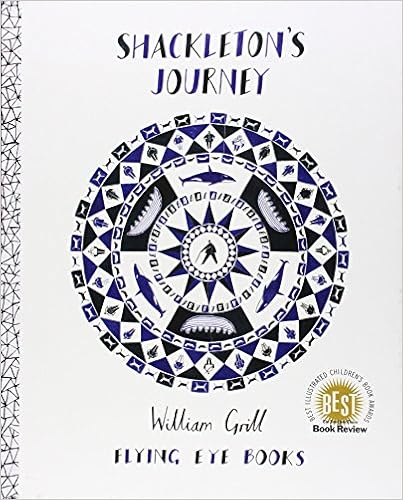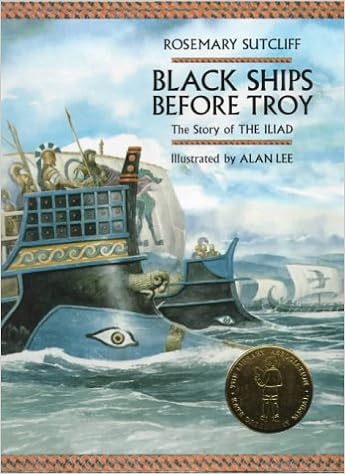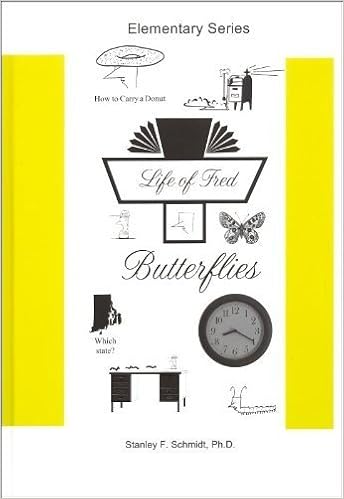Besides we are reading such great books at the moment I feel inspired!
First up, a beautiful book given for Captain Elizabeth's (aka P) recent birthday.

I had my eye on Shackleton's Journey by William Grill a while back having seen it reviewed. I love the visual style and the subject but refrained from buying it because I wasn't completely sure the girls' interest would align with mine. I was still unsure when we began, and to be honest the first few pages didn't grab the two I began reading it to (the birthday girls) - there were a lot of detailed (and gorgeous) illustrated lists and diagrams of Shackleton's preparations for his trip, but the explanation of what he was doing it all for was brief and, being new to them, didn't really resonate. The first thing that properly caught their interest was the full list of sled dog names. Some of them were pretty funny - Bummer, Side Lights, Slippery Neck - and as I read the giggles escalated into a hysteria not entirely appropriate for bedtime! So when we came back to it next (the book is fairly long and I read it in addition to our evening readaloud) the enthusiasm was there ready and waiting.
The colours are muted blues and whites, evoking the freezing Antarctic wastes. Quite quickly the Endurance gets stuck in ice and the explorers and their dogs are stranded. We were gripped by their adventures and the challenges (hundreds of miles of freezing seas! Cracking ice floes! Diminishing stores!), although the part where they had to shoot the dogs was not popular. As a follow up I want to show them some of the footage taken on the journey, including dramatic film of the ship actually surrendering to the ice.
Unfortunately Nancy's book was a duplicate (the wonderful From the Mixed-Up Files of Mrs Basil E. Frankweiler) which does however mean we can swap it for something just as exciting! Stay tuned...
We're also catching up on our Greek epics with Rosemary Sutcliffe's Black Ships Before Troy.

Matilda is very familiar with the Greek Myths from her own reading, and one of Nancy's greatest heroes is Heracles (she always insists on the Greek spelling) so this was bound to be a winner. The illustrations are lovely, and it's brings a lot to the text to be able to point out the shape of the ships and the way a crested helmet looks. We've just finished the tragic saga of Hector (I found some of it hard to read actually, even though I knew all along what was going to happen - the beautiful painting of Hector with his wife and little boy got me) and we're about to get to the death of Achilles. Unfortunately the death of Ajax is coming up too - Capt. E and Matilda have developed a great liking for him (due in no small part to the romantic illustration of him on one page) and they're going to be sad to see him go. Nancy's favourite (of course) is Odysseus, so no worries there at least!
The last regular read I'm doing in the mornings is Life Of Fred.

The maths is way too easy for them really (we supplement with games for the middle two and Hands-On Equations for Matilda) but they love Fred and there is plenty that is worth covering - sets, light years, and lots of vocabulary. I've just bought the Fractions volume which I'm hoping to start out with Matilda once she finishes this round of word problems in HOE.
On top of this their dad is reading them Astrid Lindgren's Ronia, the Robber's Daughter and we are looking at various history encyclopaedias as we approach the Agricultural Revolution in our latest 'rotation' (we're not really rotating to be honest, but prehistory is always fascinating so I thought we'd just begin again at the beginning after our move!).
A book I'm reading currently that has really been inspiring me in our history studies is Sapiens by Yuval Noah Harari. I heard him on the radio and immediately wanted to read his book, and so far it hasn't disappointed. I love particularly the way he avoids my pet hate, the assumption that prehistoric man hunted while prehistoric woman foraged. Instead Harari takes a far more subtle approach, pointing out that the five to eight million people who inhabited the earth just before the beginning of agriculture lived in thousands of different tribes with thousands of different ways of living. So it is pretty much impossible to make any assumptions about the 'natural' way people lived before farming, except that there was a huge array of possible ways.
I've read a few bits out to the girls, especially parts about mass extinctions following human migrations. Unfortunately this did lead to a bit of human guilt! I think there are quite a few parts I can share with them, as the book is written very accessibly. Not being an expert, I can't be sure what the academic reception to it has been - something worth investigating perhaps.